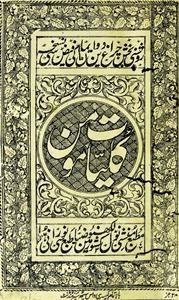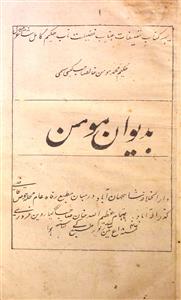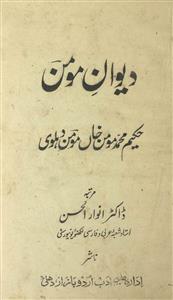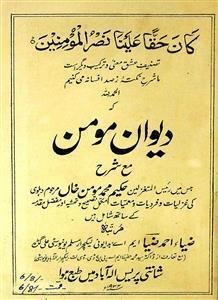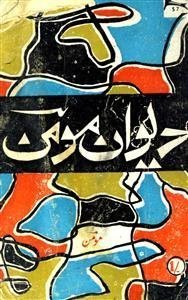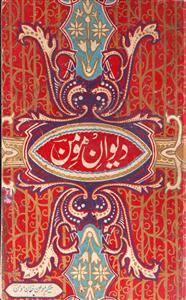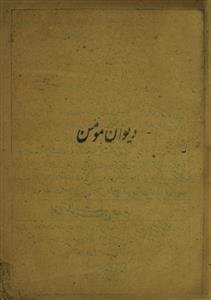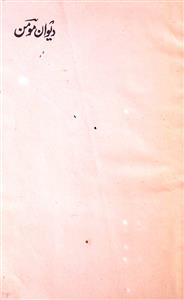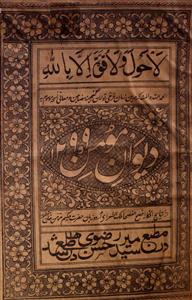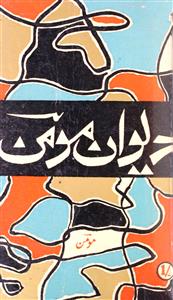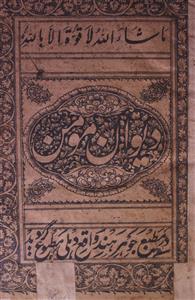 For any query/comment related to this ebook, please contact us at haidar.ali@rekhta.org
For any query/comment related to this ebook, please contact us at haidar.ali@rekhta.org
About The Book
مومن اردو کے خالص غزل گو شاعر ہیں۔ان کی غزلیات میں عاشق و معشوق کے دلوں کی واردات ،حسن و عشق اور نفسیات محبت کی باتیں ملتی ہیں۔ مومن کی غزل کا بنیادی موضوع حسن اور عشق ہے۔ان کے اشعار میں ابہام ،معنی خیزی کے ساتھ پیچیدگی حسن بھی ہے۔ ان کی زبان میں سادگی اور بیان میں حسن موجود ہے ، زبان وبیان میں دلکشی ہے ۔مومن سادہ سے الفاظ میں بھی ایک دنیا آباد کرجاتے ہیں۔ زیر نظر "کلیات مومن" ہے۔ اس کلیات کو منشی نول کشور نے شائع کیا ہے۔ اس کلیات میں دیباچہ، اور خاتمہ کے علاوہ غزلیات، قصائد، رباعیاں اور مثنویاں موجود ہیں۔
About The Author
Momin Khan Momin (1800-1852), whose father and grandfather were court physicians, was born, educated, and settled in Delhi. He received his education at the famous Shah Abdul Qadir’s school under the coveted guidance of Shah Abdul Aziz, a celebrated theologian and reformer of his times. Momin had a wider exposure to a variety of disciplines and languages like Arabic, Persian, Urdu; medicine, mathematics, and astrology. Music and chess were the other areas of his keen interest which he cultivated with care.
Momin was essentially a poet of the earthly love which he expressed best in the form of ghazal. The lover in his poetry is one of amorous disposition; he represents love along with lust, and lust as a part of life’s romance. As Momin dwelt upon the psychology of the lover, he explored his moods and reflexes, as also his erotic tendencies. In celebrating romantic love in all its manifestations, he drew upon the purity of diction, deeply nuanced phrases, and indirect modes of expression. All these made way, sometimes, for a metaphysical apprehension of the phenomenon of love and the figure of the lover. Momin was an aesthete; he personalised his material which distinguished him from many other poets who objectified them. Apart from his Urdu divaan, Momin has also left behind a Persian divaan, and works in prose.
 For any query/comment related to this ebook, please contact us at haidar.ali@rekhta.org
For any query/comment related to this ebook, please contact us at haidar.ali@rekhta.org
